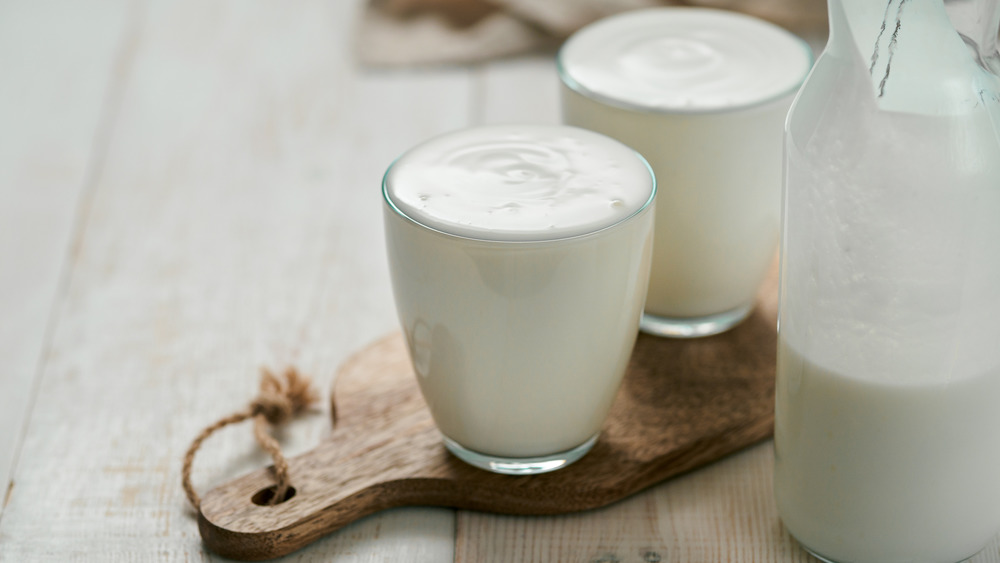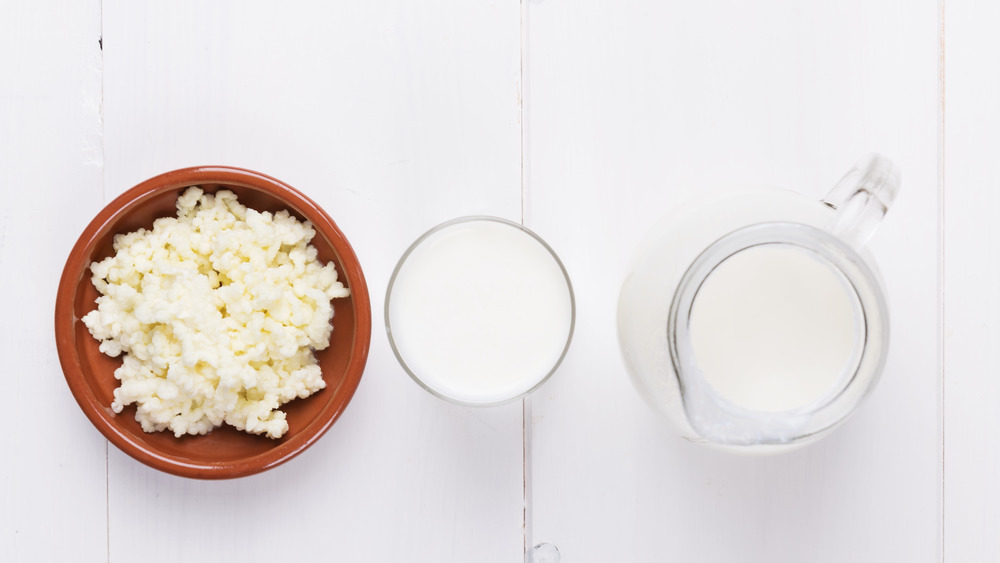Why You Should Try Adding Kefir To Your Diet
Kefir started gaining popularity as a gut-healthy form of dairy several years ago, though it's been around for centuries. The thin, more liquid version of yogurt isn't just a smoothie-friendly addition to your diet, it's packed with probiotics that can improve your gut's microbiome — and it tastes great, too.
The simple smoothie or cereal base is made by fermenting cow or goat milk with kefir grains (strains of yeast and bacteria) for 24 hours, which gives it the same slightly sour, tart taste that's found in yogurt. The fermentation process also removes most of the lactose from the milk, making it a viable dairy option if you're lactose intolerant (via WebMD).
A six-ounce serving of kefir contains around 100 calories and is packed with calcium, vitamin K2, hard-to-find vitamin B12, and phosphorus (via Healthline). Thanks to its high calcium and vitamin K content, it can help keep your bones healthy and even help prevent osteoporosis. It also boasts around 11 grams of protein, depending on the milk that it's made with.
What about the gut health benefits of kefir?
The probiotic benefits are where kefir really shines, though: It contains up to 61 strains of bacteria and yeast, making it a more plentiful and diverse source of the powerful good gut bacteria than even yogurt. Thanks to its probiotic power, it can help ease digestive issues, from excessive flatulence to diarrhea to bloating to more chronic issues like irritable bowel syndrome — hence its name, which is based on the Turkish word for "feeling good," according to Healthline.
Kefir may even help protect you from viral infections, according to recent research. And it may have more antibacterial and anti-fungal properties as well, which may help you fend off problems like yeast infections (via Medical News Today).
Because it's often found in single-serving containers, it's a great travel snack to pack for long drives or as a handy meal-in-minutes. Just make sure you're picking an option that isn't packed with added sugars, as some more commercial options can end up packing a hefty caloric punch.


